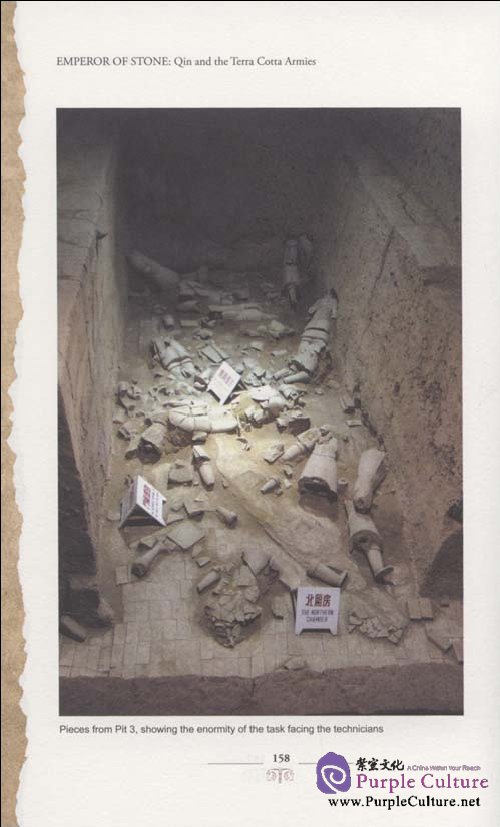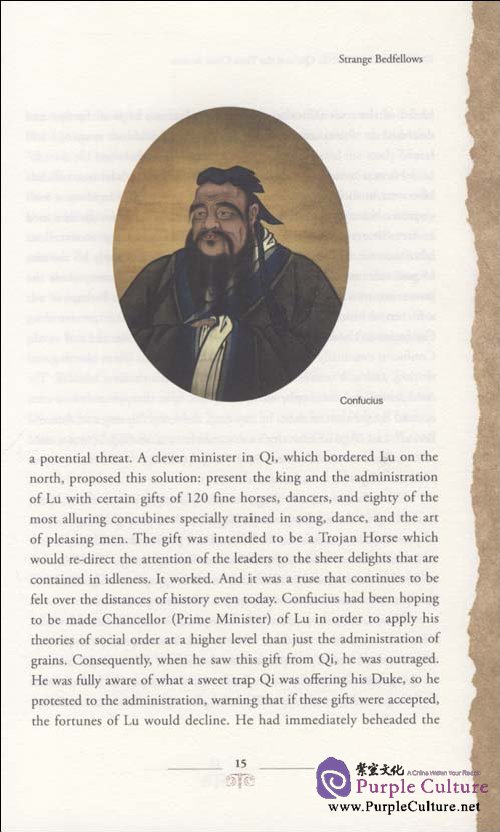Sample Pages Preview


Confucius
With
the decline of the Zhou dynasty, the country lacked a strong central
government, so that relationships with the other states were unstable.
But it had been that way even before the Warring States Period. During
the time of Confucius (551-479 BC) in fact, which - if you believe the
titles "Spring and Autumn Period" and "Age of Chivalry"-should have been
a more congenial period, intrigue still lingered in the air like dust
from battle. Confucius, a resident of Lu, had been appointed by the
government as the Minister of Agriculture. At the time, farmers were
unhappy and grain production was low. Grain merchants were using
over-sized measures to tally the farmers' crops but crediting the
farmers with only a standard one. In this way, the farmers were paid for
much less than their actual production. Confucius executed the corrupt
officials, and when he had finished his reforms, agricultural production
was up and farmers were, for the first time in a long time, happy
because they were no longer being cheated. He also strengthened the army
to make Lu less vulnerable to attack.

